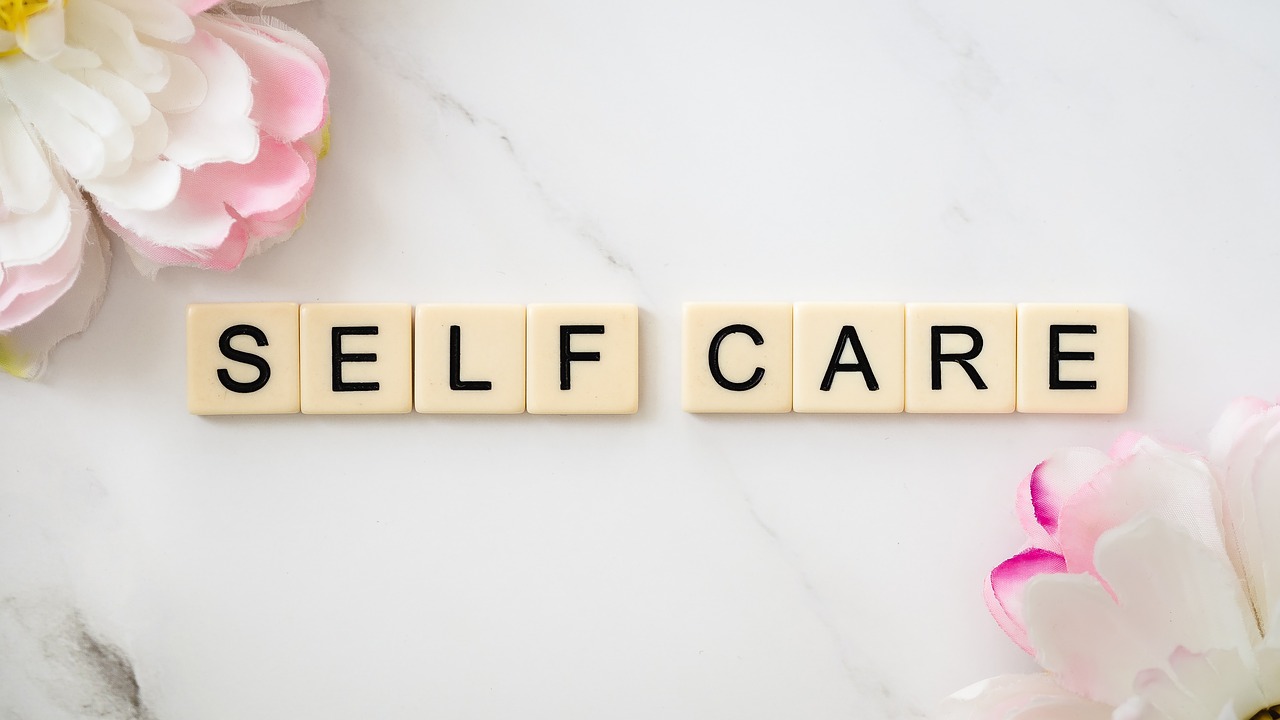“Self-care for Mental Health“
In today’s fast-paced world, mental health often takes a backseat to the demands of work, relationships, and daily responsibilities. However, prioritizing mental well-being is essential for overall health and happiness. Self-care isn’t just about pampering yourself with luxurious experiences; it’s about creating habits and routines that nurture your mind, reduce stress, and maintain emotional balance. Practicing self-care consistently can help you prevent burnout, manage anxiety, and build resilience.
In this article, we’ll dive into various self-care practices that specifically target mental health, offering actionable strategies to nurture your mind and improve emotional well-being.
1. Mindfulness Meditation: Grounding Your Thoughts
One of the most effective self-care practices for mental health is mindfulness meditation. Mindfulness involves paying attention to the present moment without judgment. It helps you become more aware of your thoughts, emotions, and surroundings, allowing you to respond to stress more calmly.
-
- How to Practice: Set aside 5–10 minutes daily to focus on your breathing. Close your eyes, take slow, deep breaths, and observe any thoughts or feelings that arise without trying to change them. Over time, mindfulness meditation can reduce anxiety, improve focus, and increase emotional regulation.
-
- Benefits: Studies show that mindfulness can reduce symptoms of depression, anxiety, and stress by helping the mind remain calm and centered. It also improves overall emotional resilience, helping you face challenges with a clearer mindset.
Action Tip: Start your day with a brief mindfulness meditation session. Apps like Headspace or Calm can guide you through simple exercises to help cultivate mindfulness.
2. Journaling: A Path to Emotional Clarity
Journaling is a powerful self-care tool that helps you process your thoughts and emotions. It offers a safe space to reflect on your experiences, identify patterns in your thinking, and release pent-up feelings. Writing about your thoughts can give you insight into your emotional state, helping you understand and manage your mental health better.
-
- How to Practice: Dedicate 10–15 minutes each day to writing down your thoughts and feelings. You can write freely about your day, or you can use prompts like, “What am I feeling right now?” or “What challenges am I facing, and how can I address them?” By putting your emotions into words, you create a tangible way to process and release stress.
-
- Benefits: Journaling improves mental clarity, reduces stress, and helps manage overwhelming emotions. It also boosts problem-solving skills by helping you articulate and analyze your thoughts more effectively.
Action Tip: Use journaling as a nightly ritual before bed to reflect on your day and clear your mind. Over time, you’ll gain better emotional insight and clarity.
3. Physical Exercise: Moving for Mental Well-being
Exercise isn’t just beneficial for your body—it’s also crucial for your mental health. Physical activity releases endorphins, which are natural mood boosters. Regular exercise can reduce symptoms of anxiety and depression, improve sleep, and enhance cognitive function.
-
- How to Practice: Incorporate at least 30 minutes of physical activity into your daily routine. You don’t have to hit the gym; activities like walking, dancing, or yoga can be just as effective. Choose an exercise you enjoy so it becomes a sustainable part of your self-care routine.
-
- Benefits: Exercise reduces stress hormones like cortisol, boosts energy levels, and improves overall mood. It also helps alleviate symptoms of anxiety and depression by promoting better sleep and reducing fatigue.
Action Tip: Take short breaks throughout the day to move your body, especially if you have a sedentary job. Stretching, short walks, or even a quick workout can refresh your mind and help you stay focused.
4. Healthy Sleep Habits: Recharging Your Mind
Sleep is vital for mental health, yet many people neglect it. Poor sleep can lead to irritability, reduced cognitive function, and increased anxiety. Prioritizing quality sleep is a simple but effective self-care practice that nurtures your mental and emotional well-being.
-
- How to Practice: Establish a consistent sleep routine by going to bed and waking up at the same time each day. Create a relaxing pre-sleep ritual, such as reading, meditating, or listening to calming music. Avoid screens and caffeine before bed, as they can disrupt your sleep cycle.
-
- Benefits: Adequate sleep improves mood, reduces stress, and enhances mental clarity. A well-rested mind is more resilient and better equipped to handle daily challenges.
Action Tip: If you struggle with falling asleep, try practicing deep breathing or progressive muscle relaxation before bed. These techniques can help relax your body and mind, making it easier to drift off.
5. Social Connection: Strengthening Your Support Network
Human beings are social creatures, and strong social connections are essential for mental health. Spending time with loved ones, whether in person or virtually, can reduce feelings of loneliness, improve mood, and provide emotional support during tough times.
-
- How to Practice: Make time to connect with friends, family, or support groups regularly. Even short, meaningful conversations can have a positive impact on your mental health. If you’re feeling isolated, consider joining a community group or participating in activities that align with your interests.
-
- Benefits: Social connections act as a buffer against stress and help reduce feelings of anxiety and depression. Building a strong support network fosters a sense of belonging and emotional security.
Action Tip: Reach out to someone you care about at least once a week, whether through a phone call, video chat, or meeting in person. Regular social interactions can significantly boost your mood and emotional well-being.
6. Creative Expression: Engaging in Therapeutic Activities
Creative activities like coloring, painting, music, or writing can serve as therapeutic outlets for emotions. These activities allow you to express yourself in non-verbal ways, providing relief from stress and anxiety.
-
- How to Practice: Set aside time for creative expression each week. Whether it’s drawing, playing a musical instrument, or trying out new recipes, engage in activities that stimulate your imagination and provide joy. These practices allow you to explore your emotions and gain mental clarity in a relaxed and enjoyable way.
-
- Benefits: Creative expression reduces stress, boosts mood, and enhances cognitive function. It provides an outlet for releasing emotions in a constructive and enjoyable manner, promoting mental relaxation and inner peace.
Action Tip: Try adult coloring books, which have been shown to reduce anxiety and promote mindfulness. Even a few minutes of coloring or sketching can offer significant emotional relief.
7. Nature and Outdoor Activities: Reconnecting with the Environment
Spending time in nature has been proven to have numerous mental health benefits. Being outdoors can reduce symptoms of anxiety, depression, and stress while boosting your mood and overall sense of well-being.
-
- How to Practice: Try to spend at least 30 minutes outdoors each day, whether you’re walking in a park, hiking, or simply sitting outside in a natural setting. The fresh air, natural light, and sounds of nature can provide a calming effect on your mind.
-
- Benefits: Nature exposure lowers stress levels, improves focus, and enhances mood. It also encourages physical activity, which contributes to overall mental well-being.
Action Tip: Incorporate nature into your daily routine by taking a walk during your lunch break or spending weekends hiking or gardening. Regular exposure to nature can significantly reduce feelings of stress and improve mental clarity.
8. Healthy Eating: Nourishing Your Mind
What you eat directly affects how you feel mentally. A balanced diet rich in whole foods, fruits, vegetables, and lean proteins supports optimal brain function, energy levels, and mood stability.
-
- How to Practice: Incorporate more nutrient-dense foods into your diet, such as leafy greens, whole grains, nuts, and fish rich in omega-3 fatty acids. Avoid excessive sugar, caffeine, and processed foods, which can lead to mood swings and fatigue.
-
- Benefits: A healthy diet boosts cognitive function, stabilizes mood, and improves overall energy levels. Proper nutrition can also reduce symptoms of anxiety and depression.
Action Tip: Plan your meals ahead of time to ensure you’re eating nutritious foods. Small changes, like replacing sugary snacks with fruit or nuts, can have a big impact on your mental well-being.
Conclusion: “Self-care for Mental Health”
Self-care is essential for nurturing your mental health. By incorporating mindfulness, journaling, exercise, sleep, social connections, creative expression, nature, and healthy eating into your routine, you can significantly improve your emotional well-being. These practices help create balance, reduce stress, and build resilience in the face of life’s challenges. Remember, self-care is not selfish—it’s a necessary investment in your overall health and happiness.
Let your imagination run free, Immerse yourself in a world of colors and beauty. Remember, your mental well-being is priceless.
Team coloringbookvibe.com

Coloring Book Vibe is a dedicated publisher of captivating coloring books, along with instructional books on drawing and coloring techniques. We are deeply passionate about the art of coloring, ensuring our designs are always intricate, beautiful, unique, and often infused with a touch of humor. We highly value our customers and always welcome feedback and suggestions. Our collection features an incredible array of coloring books across various genres, including Fantasy, Animals, Mandalas, Doodle Patterns, Floral, Landscapes, Country Scenes, and more.



